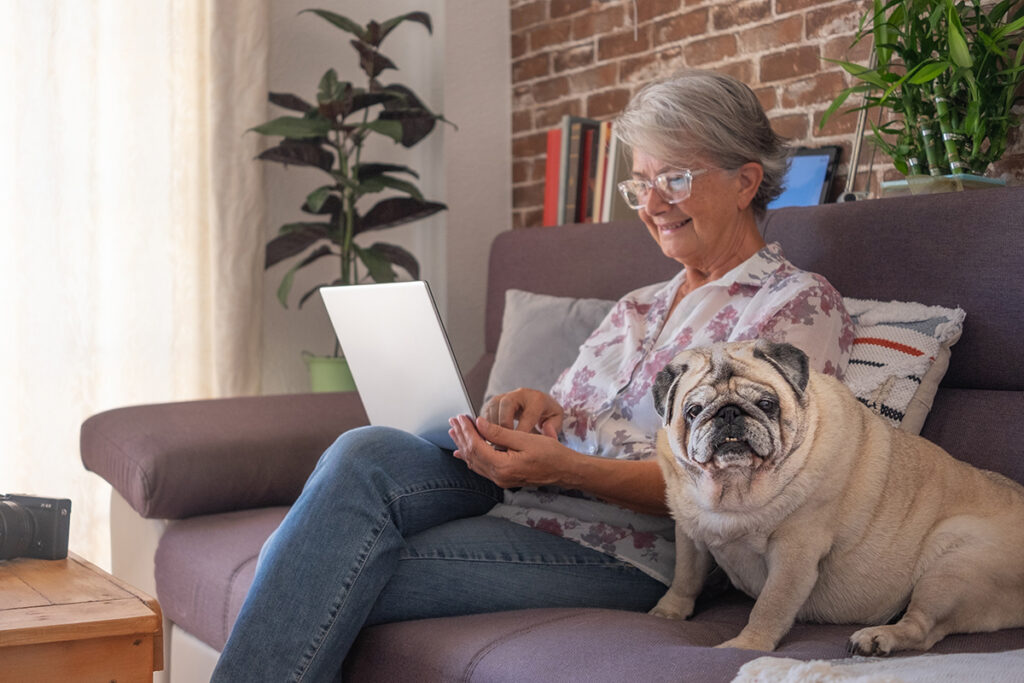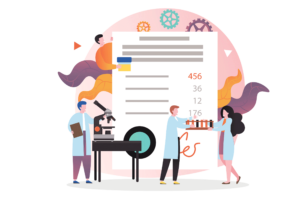The difficulty of recruiting participants for clinical trials has slowed innovation and led to a lack of diversity in clinical trial populations. In turn, that lack of diversity widens health disparities experienced by minority patients in America and can reinforce the barriers that prevent greater participation in clinical research.1 The many obstacles that prevent more efficient enrollment in clinical trials are perhaps most pronounced for Alzheimer’s disease (AD), where more than 99% of eligible individuals never consider clinical trial participation.2 In 2020, an advisory panel led by the University of Southern California (USC) Schaeffer Center for Health Policy & Economics reviewed the most significant recruitment barriers for AD clinical trials and prioritized potential solutions in a recent publication.3 Chief among the identified barriers was a lack of public awareness about opportunities for participation and knowledge of early AD symptoms. Among their recommendations, the experts suggested that researchers “initiate brain health awareness campaigns targeting diverse communities to promote the benefits of early screening and diagnosis.”
In response to this and similar calls to action, many academic institutions, government agencies and nonprofit organizations have explored avenues to increase education and awareness of AD clinical trials. Given the emphasis on reaching minority and underrepresented populations who may have greatest distrust in the medical industry,1 efforts originally focused on in-person community events at churches or other culturally important meeting centers.4 For example, in 2019 the BrightFocus Foundation (BFF) launched a clinical trial awareness campaign around the documentary film Turning Point: The Quest for a Cure. The film captured the heroic dedication of researchers and clinical trial volunteers working to develop effective treatments for AD. BFF organized over 130 screenings of the documentary to groups of healthcare professionals, medical students, people concerned about dementia, people living with dementia and caregivers. However, the COVID-19 pandemic shut down almost all in-person gatherings and BFF, along with the research community, needed new ways to spread awareness about AD.
Working in collaboration with many partners, BFF decided to explore virtual options to share information about AD. With the onset of the pandemic, BFF developed the virtual outreach series Brain Info Live® and focused its episodes and content on three geographic locations with large Black and Hispanic populations who are significantly underrepresented in AD clinical trials. BFF designed virtual, yet interactive, events filled with education, entertainment and exercise. As of August 2023, the Brain Info Live series includes more than 80 episodes across 4 locations and 3 languages, all available for free.
The USC Clinical Trial Recruitment Lab (CTRL) reviewed BFF’s experiences, given their broad efforts in AD clinical trial recruitment across many stakeholders and multiple venues. Based on BFF staff interviews, CTRL compiled the lessons learned about how to successfully reach potential trial participants virtually. This blog post describes the Brain Info Live series and those key lessons about virtual outreach via social media.
Brain Info Live® Series
In the summer and fall of 2020, BFF began developing Brain Info Live as a way to continue the success and momentum it had achieved with in-person community events and documentary screenings such as Turning Point: The Quest for a Cure and Glen Campbell…I’ll be Me. COVID-19 restrictions shut down almost all in-person events, so BFF created a virtual outreach series to provide important information about AD while promoting opportunities to participate in clinical trials. Although the episodes could be streamed nationwide, BFF wanted to mimic the feel of the community events, so created localized content tailored to underrepresented communities in Greater Boston, Southern California, and Florida. Over the next two years, the BFF team created many different episodes with several geared towards a Spanish-speaking audience.
To generate the trust and community feel of their previous in-person events, each 50-minute episode was hosted live by an AD leader from the local community. The episodes began with a brief introduction of the day’s topic from the host followed by a 5-minute chair exercise session led by personal trainer and fitness guru John Lewis. Next, a guest expert made a short presentation followed by a conversation with the host. The episodes also pulled relevant content from popular TV shows and films such as Grey’s Anatomy, Still Alice, theJapanese film Memories of Tomorrow, andvarious Spanish novellas. The rest of the show was dedicated to a question-and-answer period between the host, expert guest, and the virtual audience. Each episode closed with a poll question and a slide with local and national resources.
In addition to creating the Brain Info Live episodes, BFF devoted significant resources to marketing the series and hoped viewers would tune in to the show live. The series was linked to the BFF website and was promoted through the Brain Info Live Facebook and Instagram accounts. Prior to each new episode, BFF disseminated emails and social media tool kits to all of the organization’s partners. BFF also assembled a voluntary email subscriber list that was used for new episode reminders and follow-up emails with relevant resources. The entire series was also available to watch on demand via Vimeo.
The first episode of Brain Info Live aired in August 2021 and was marketed to the Greater Boston area. Facebook was the main marketing platform for Brain Info Live (including organic and paid promotional posts) and BFF staff connected with over 50 AD caregiver Facebook groups to share information about their virtual content. Figure 1 shows a list of all 18 Greater Boston episodes, demonstrating the range of topics that were covered.
Figure 1. Brain Info Live Episodes in Greater Boston
Lessons Learned
Over two years, BFF worked to expand the reach of community health campaigns by exploring a virtual platform capable of bringing a large audience together. BFF’s virtual AD awareness series was launched at a scale that has not been well studied in the literature, and the lessons learned can provide important information for future research. As society continues to rely on virtual interactions even post-pandemic, it is important for the research community to understand whether and how virtual campaigns can be successful.
- Plan for on-demand: Although effort was put into making each episode a live and interactive event, BFF found that most of their viewers chose to stream the episodes on their own time rather than participate during the live events. This pattern of viewership persisted despite email reminders and social media marketing efforts to encourage viewers to join and participate during each live episode. In fact, although the email subscriber list grew over time, this had little impact on live viewership. As a result, it may have been better to plan for an on-demand event from the outset, rather than designing the episodes around live viewership. For example, Brain Info Live episodes were planned to include poll questions as well as an audience question-and-answer period; these could be removed or replaced with other content for an on-demand format.
- Viewership is not location-specific: Given the limited interest in live participation, BFF is re-evaluating the need for location-specific episodes. If episodes are to be streamed on-demand rather than live, resources could be stretched further by developing future content for a single, nationwide audience rather than for separate localities.
- Shorter can have additional impact: Statistics from the streaming platform, Vimeo, revealed that most viewers were not watching the entire episode. In fact, on average, viewers only watched 33% of an episode. Thus, most viewers were dropping off before the substantive discussions between the host and invited guests. As a result, BFF is editing the episodes into shorter sections which will allow viewers to jump to the content they are most interested in consuming.
- Use multiple social media platforms: BFF initially promoted Brain Info Live on Facebook and joined more than 50 private AD caregiver groups. However, the team later expanded to Instagram recognizing that they can reach a larger audience if they work with additional platforms. For example, BFF staff suggest creating shorter video clips (less than 3 minute) that are easier to share across all social medial platforms. Similar video clips have become popular in the news media and may attract a broader audience. BFF is considering ways to optimize its current content by allowing viewers to search specific topics or video segments.
- Know your audience: The Facebook and Vimeo audience for the Brain Info Live series was 80% female and predominantly over the age of 55. The email subscriber list was also overwhelmingly female, which suggests that virtual outreach about AD is much more salient among women and that the content could be tailored more specifically to their concerns. Alternatively, future virtual campaigns could be tailored to male viewers, refining the content in ways that will appeal to a different market segment.
Looking Forward
Lack of awareness remains one of the biggest barriers to participation in AD clinical trials, especially among underrepresented groups. BFF has been a leader in exploring new ways to connect with communities and to expand access to clinical trials. Its recent experience developing a virtual AD informational series revealed important insights about how people engage with virtual content differently from how they engage at in-person events. As more partners and stakeholders explore ways to leverage social media for AD awareness, it will be important to understand the unique challenges that come with virtual content. For example, BFF found that viewers wanted to consume the virtual information at their convenience, choosing that over more interactive elements. Clearly this format is very different from an in-person event where the host is interacting with audience members. Additionally, the virtual viewers had rather short attention spans and could abandon the video at any time, whereas it is much more difficult to walk out in the middle of an in-person event or video screening.
Given all that BFF has learned in the past few years about using virtual events to engage people in underrached communities, the team is pivoting back towards more intimate, in-person events as well as exploring additional strategies to foster the in-person feel virtually. For example, BFF is leveraging the video content and clips of the Brain Info Live episodes during their in-person events. The team is selecting the most impactful 3-10 minute segments from the 80+ longer episodes and repackaging them for free educational use. BFF realizes that trust building is a key element when recruiting participants for AD clinical trials and is best achieved through direct engagement.
Given the growing importance of the virtual world, BFF will not abandon video content. However, they have pivoted away from the more rigid streaming services and opted to host monthly townhall meetings via Zoom. Their new “Zoom in on Dementia and Alzheimer’s” series, launched in April 2023, covers a wide range of topics including breaking AD research news and commonly asked questions. The new series differs from Brain Info Live in several critical ways. First, the Zoom platform allows all audience members to be seen and heard more easily, which creates a closer, more friendly setting like one might experience on a work Zoom call. Second, “Zoom in” is designed as an “ask the expert” series and features a renowned subject matter expert on each episode. Finally, BFF is marketing “Zoom in” to a broader audience—a preexisting mailing list of people who have opted in to receive educational communications—compared to Brain Info Live’s focus on diverse or underreached communities. The early feedback after seven episodes is promising with an average of 200 participants joining live.
As the AD research community continues to expand its outreach and public awareness efforts, it is important that we learn from each other and continue to refine a set of best practices for reaching diverse communities. The virtual content work that BFF started with Brain Info Live and continues today in various new ventures demonstrates that one solution does not fit all communities. Successfully increasing awareness of AD and expanding access to clinical trials and treatments will require a multifaceted approach.
References
- National Academies of Sciences, Engineering, and Medicine. Improving representation in clinical trials and research: Building research equity for women and underrepresented groups. Washington, DC: The National Academies Press. 2022.
- Malzbender K, Lavin-Mena L, Hughes L, Bose N, Goldman D, Patel D. Key barriers for clinical trials for Alzheimer’s Disease. USC Schaeffer Center White Paper. 2020.
- Langbaum JB, Zissimopoulos J, Au R, et al. Recommendations to address key recruitment challenges of Alzheimer’s disease clinical trials. Alzheimers Dement. 2023;19(2):696-707.
- Epps F, Alexander K, Brewster GS, et al. Promoting dementia awareness in African-American faith communities. Public Health Nurs. 2020;37(5):715-721.
Sign up for Schaeffer Center news



